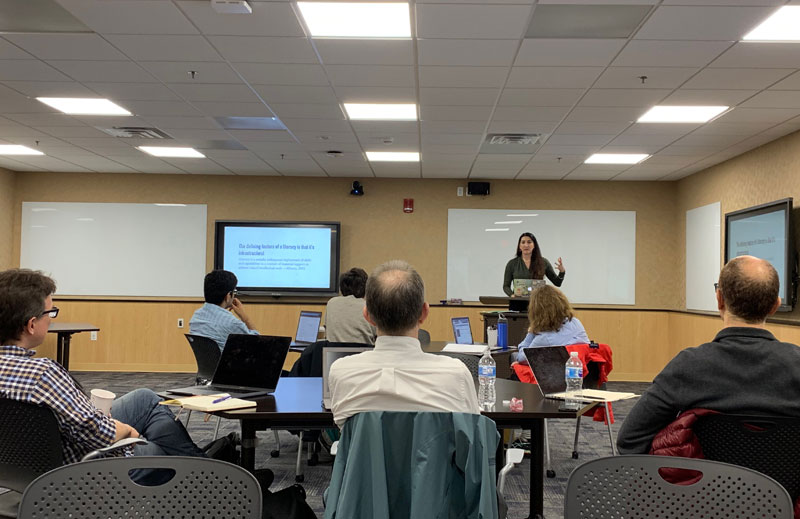Mikel Amigot | IBL News
Using open educational resources such as Jupyter and Open edX to teach STEM will transform teaching and learning and result in an engaging active experience in the classroom.
This was the central idea of a faculty workshop conducted by Professor Lorena A. Barba, from The George Washington University (GW), at the University at Buffalo this weekend.
During this hands-on seminar, participants reviewed some of the education research underpinning design decisions and discovered practices of open education.
Also, it included an introduction to the Jupyter toolbox for teaching and learning.
“Jupyter is a killer app, it provides a medium for expression using computing as part of the learning,” said Professor Lorena Barba who has been using Jupyter for over six years.
“Using the Open edX course platform, you can construct learning pathways using content pulled dynamically from a public Jupyter notebook (e.g., on GitHub), with the Jupyter Viewer Xblock.”
GW, along with IBL Education, contributed two XBlocks to build edX-style courses based on Jupyter: the Viewer, and a Jupyter Grader for auto-graded student assignments.
Jupyter-based courses can be written using an open development model (like any open-source software project), collaboratively and under version control. Once the material is ready, instructors can build a MOOC-style course on Open edX, pulling the content from the notebooks without duplication in the course platform.
Instructors can interleave short videos and graded sub-sections using the built-in problem types, or using the Graded Jupyter XBlock.
“Our course development workflow is the product of several years of refinement and applies evidence-based instructional design. Combined with modern pedagogies used in the classroom, like active learning via live coding, you can create learning experiences that are effective on campus and online,” explained Prof. Barba.
Watch the interview with Professor Lorena A. Barba in the video below.

 En Español
En Español





















